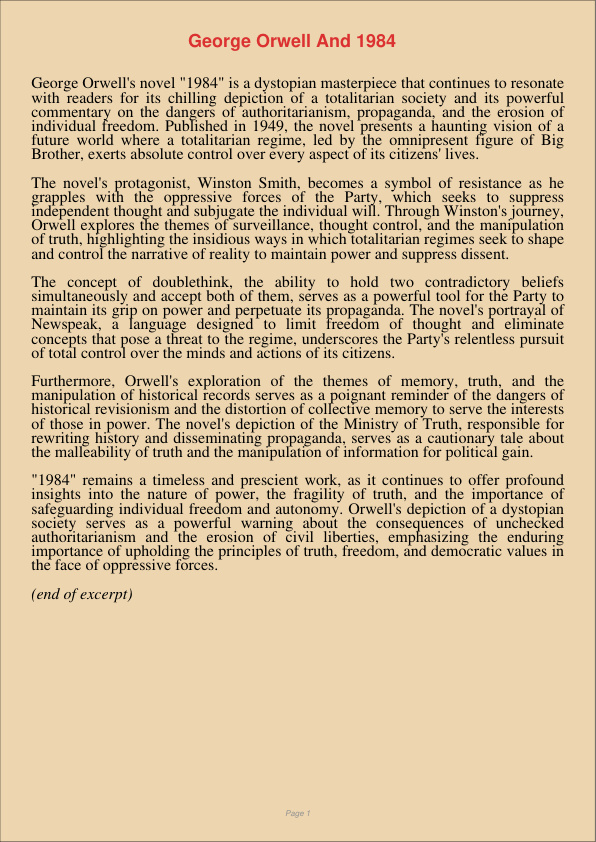George Orwell And 1984
Dec 31, 2023
george orwell
1984
Education
Business

George Orwell’s novel “1984” is a dystopian masterpiece that continues to resonate with readers for its chilling depiction of a totalitarian society and its powerful commentary on the dangers of authoritarianism, propaganda, and the erosion of individual freedom. Published in 1949, the novel presents a haunting vision of a future world where a totalitarian regime, led by the omnipresent figure of Big Brother, exerts absolute control over every aspect of its citizens’ lives.
The novel’s protagonist, Winston Smith, becomes a symbol of resistance as he grapples with the oppressive forces of the Party, which seeks to suppress independent thought and subjugate the individual will. Through Winston’s journey, Orwell explores the themes of surveillance, thought control, and the manipulation of truth, highlighting the insidious ways in which totalitarian regimes seek to shape and control the narrative of reality to maintain power and suppress dissent.
The concept of doublethink, the ability to hold two contradictory beliefs simultaneously and accept both of them, serves as a powerful tool for the Party to maintain its grip on power and perpetuate its propaganda. The novel’s portrayal of Newspeak, a language designed to limit freedom of thought and eliminate concepts that pose a threat to the regime, underscores the Party’s relentless pursuit of total control over the minds and actions of its citizens.
Furthermore, Orwell’s exploration of the themes of memory, truth, and the manipulation of historical records serves as a poignant reminder of the dangers of historical revisionism and the distortion of collective memory to serve the interests of those in power. The novel’s depiction of the Ministry of Truth, responsible for rewriting history and disseminating propaganda, serves as a cautionary tale about the malleability of truth and the manipulation of information for political gain.
“1984” remains a timeless and prescient work, as it continues to offer profound insights into the nature of power, the fragility of truth, and the importance of safeguarding individual freedom and autonomy. Orwell’s depiction of a dystopian society serves as a powerful warning about the consequences of unchecked authoritarianism and the erosion of civil liberties, emphasizing the enduring importance of upholding the principles of truth, freedom, and democratic values in the face of oppressive forces.